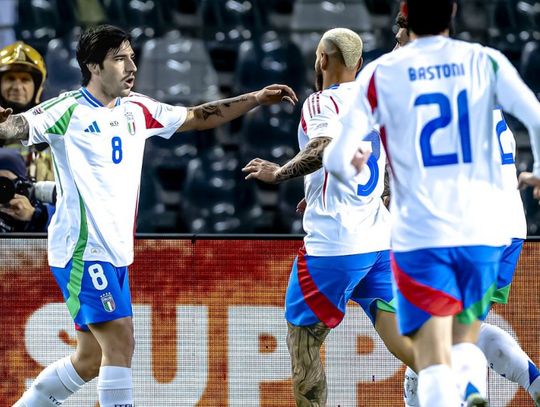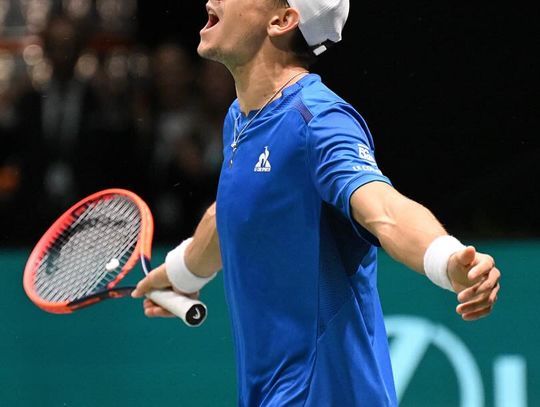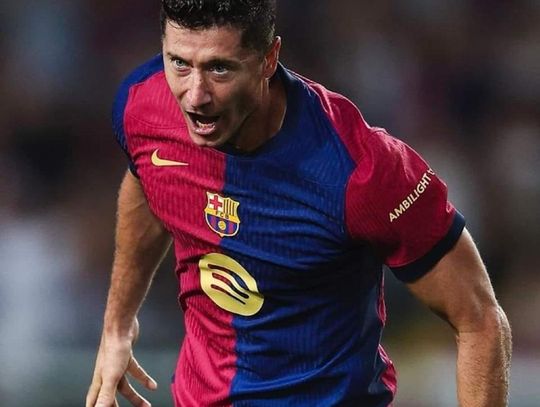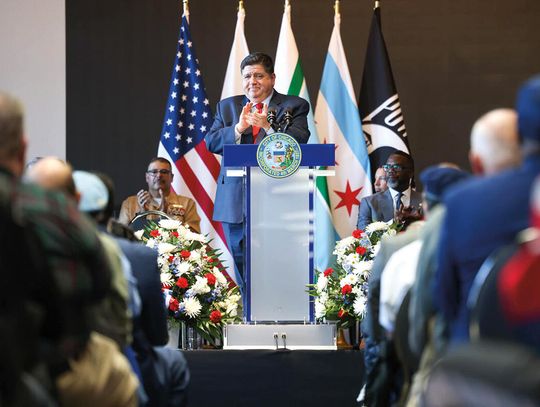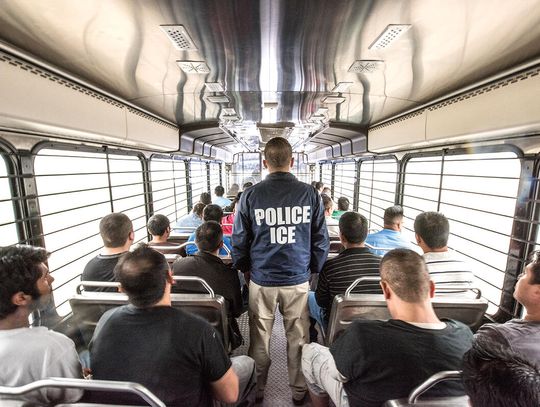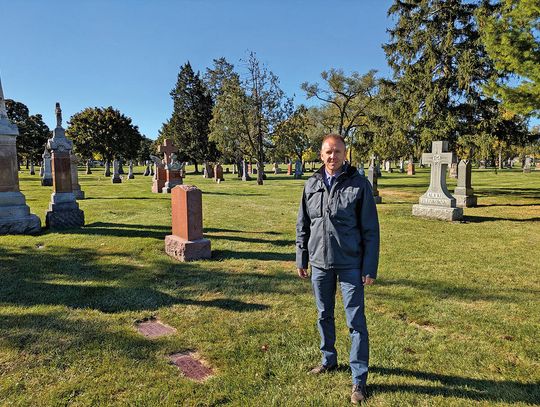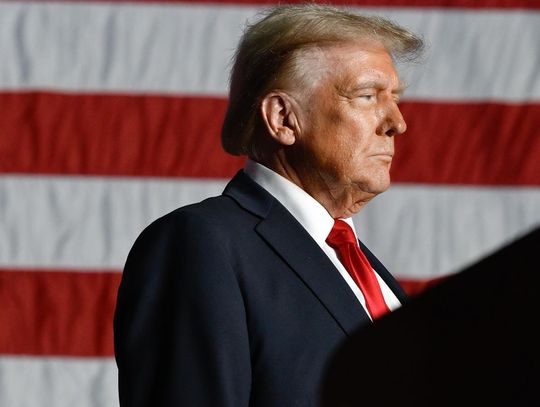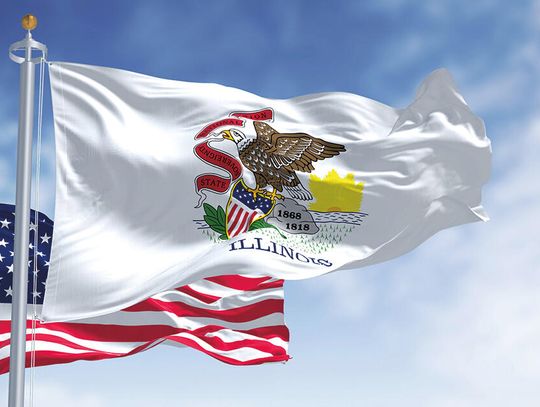Trump Wouldn't Win Without Polish-Americans. An Interview With William “Bill” Ciosek
- 11/21/2016 10:07 PM
Grzegorz Dziedzic: How did you become so engaged in Donald Trump's campaign?
William “Bill” Ciosek: – I was instantly a very passionate supporter of Donald Trump. I was one of the few believers at the beginning, when he announced that he was going to run for president. I am a believer that there is globalist movement going on around the world that is very threatening to this country's culture, history and identity. When I was advising Trump's campaign and they asked me for analysis, a macro-picture of where Poland is at, I explained my simple version, and they loved it. I said: “History repeats itself. In 80's Poland, Pope John Paul II and Ronald Reagan brought down the main threat of that time – communism.” At this point Donald Trump said that John Paul II was the greatest human being of twentieth century. I said that we were experiencing a similar threat now. Thirty years later the threat is world wide corrupt globalism. The richest people in the world, the super elite is trying to take over individual countries. But history repeats itself. In Poland, there is a new elected patriotic government, in the UK, the Brexit shocked Europe, and, completing the triangle, America. Just like Ronald Reagan in the 80's, we have Trump's populist movement. So, Poland with a new government, UK with Brexit and the US with Donald Trump stand together against corrupt globalism. They loved my perspective and we were able to set up a meeting in Chicago. I was always close to Republicans, I was a top Republican media consultant working for Reagan's campaign. Back in the day, working on Ronald Reagan's campaign, I met people who then worked for Trump's campaign. They knew me.
You are the person who organized Donald Trump's visit at Polish National Alliance in Chicago and meeting with Polish-American community. How difficult was it to organize that meeting?
– The breaking point came in May when Bill Clinton, campaigning for his wife, slandered and insulted Poland and Hungary, when he said they don't care about democracy and freedom, and they should be very appreciative of us because we won freedom for them. I was so angry when I heard that. Clinton was talking about the biggest freedom-loving country, Poland, which brought down communism. It really ignited me. Then I contacted Trump's campaign and it took six months to organize this meeting in Chicago with great cooperation with the Polish American Congress and Polish American Alliance. It was a great success. Not only was the Polish side happy, but according to Trump's campaign it was one of the best meetings with ethnic groups ever. Now they were really listening to me. I told them they could win Wisconsin, Michigan and Pennsylvania, three of the biggest Polish states. In Wisconsin, 9.3 percent of the population are Polish-Americans, in Michigan it's 8.6 percent and in Pennsylvania it's 7 percent. There are tens of millions Polish-Americans in US, and that is a significant number. Four years ago ten percent of all the voters in presidential campaign were Polish-American voters. Their votes account for a much higher percentage than the percentage in the general population. 15 percent of voters in Wisconsin were Polish-Americans, 10 percent in both Michigan and Pennsylvania. I said they could win those states if they get the Polish-Americans' votes. I educated them that we should reach Polish-Americans and the best way to do it was to go to Chicago. I told Trump's people that Ronald Reagan during his campaign went to Chicago to meet the Polish community. His helicopter landed behind the building of the Polish National Alliance. I said: “If Reagan went, we can go.” Finally, it was done.
On election night, when everybody in Trump's campaign was celebrating, Trump himself saw a map and said: “Look, we won the democratic states Wisconsin, Michigan, and Pennsylvania! Where is that Polish-American guy? Thank God we went to Chicago!” It was unbelievable.
The Polish community in Chicago reacted very enthusiastically to the meeting with Donald Trump. The majority of Polish people in Chicago are Trump supporters and voters. Why, in your opinion, is Donald Trump so popular among Polish-Americans?
– I really believe that in essence, deep down inside, in their spirit, an average Polish-American understands that the main threat to the world is corrupt globalism. The great majority of Polish-Americans understood that this election was a choice between the good guys and the bad guys. They understood that we either elect Trump, who is going to enforce strong borders, keep American constitution and ideas alive, or we're just going to become lost. They realized that they could stop globalism, just as they stopped communism. There are two groups of Polish people in the US. I call the first group “current Polish-Americans.” They were born and raised in Poland, and came to the US in the 70's and 80's. There are maybe about one million of the current Polish-American people in America. But the bigger group, which I belong to, represents the nine million people who come from Polish families. They grew up with the traditions of the Polish Roman Catholic Church, and they have a background of Polish history and culture. Both groups share the same values, and in general they understand what I articulated at the beginning of this interview about the threat of globalism. People from Mr. Trump's campaign are so happy that I broke through to them, and then they were able to go to Chicago and have that historic meeting. Now they see that without the votes of Polish-Americans Donald Trump probably wouldn't have won this election. We won Michigan by only 12 thousand votes. We won Pennsylvania by less than one percent, and the same situation happened in Wisconsin. Trump's campaign people understand it and give a lot of credit to the freedom-loving and freedom-fighting Polish-American people, who literally helped us win the White House.
On November 16th President-Elect Donald Trump spoke on the phone to Polish president Andrzej Duda. Did you play a role in arranging this conversation?
– I received a phone call from Maciej Swirski, a special adviser of minister Glinski, who asked me how to organize a phone conversation between Duda and Trump. I called John Mashburn, a policy director from Trump's campaign, and Senator Jeff Sessions. Thanks to their help and effort we were able to add Poland to the list of 29 countries whose leaders Donald Trump was going to call first. The conversation took place and both sides seemed very satisfied. Currently we are working on arranging phone calls between Mike Pence and Polish prime minister Beata Szydlo, and between minister Witold Waszczykowski and the person who will be responsible for foreign policy in Trump's administration.
Do Polish-Americans, after decades of being absent in American politics, now have a chance to be heard and noticed as an important group with a strong voice?
– In my opinion, now more than ever. I think that not only the Polish-American community, but the country and nation of Poland will have more influence under Trump's presidency than under any other president in our lifetime. In the next six months Polish people will be very pleasantly surprised by Trump. They were hearing the same things that Americans were hearing from the corrupt media – many inaccurate things about Donald Trump. He and the new Polish government share the same attitude about defending our culture, history and values. Trump wants to make America great again, just like the Polish government wants to make Poland great again.
People in Poland are concerned about Mr. Trump's ideas of repairing relations with Vladimir Putin. They are afraid that Poland's security may be in danger.
– American military will become much stronger under Trump. In his campaign he used the term “keys through strength”. We will build up our military, and hopefully we will never have to use it. If you are weak, that weakness invites aggression. The only way to avoid aggression is through strength. A strong America will guarantee security and peace in Europe. I spoke to Donald Trump about those issues, and he spoke about them on many occasions as well. The media portrayed Trump as a man with possible relations with Putin. They brought this up after the publications of Wiki-Leaks, that published materials harmful to Hillary Clinton. In reality, Trump doesn't know Putin, he never met him. It wasn't him who let Ukraine lose Crimea, it wasn't him who took the missile shield out of Poland. It wasn't on his watch. Donald Trump's philosophy is peace through strength. He knows that people like Putin thrive on others' weaknesses. Trumps sees such aggressors as bullies. He will negotiate with Putin from a position of strength. Trump is a strong, tough guy.
During the meeting in Chicago, Donald Trump made a few serious declarations. He promised to change the visa waiver program for Poland, and he mentioned that he would start negotiations with Russia regarding the return of the remains of the presidential plane that crashed in Smolensk in 2010. Do you think he will keep those promises?
– Yes, I do, and I am very familiar with them. Once we knew the meeting was going to happen, John Mashburn asked me to present the main issues that the Polish-American community may be concerned about. The Visa waiver program and the remains of the presidential plane were two priorities. Donald Trump was updated about them. During the meeting those issues were addressed and some people asked if because of Trump's policy about strong borders, Poland may have problems with the visa waiver program. Trump said that, absolutely not, because he has never treated Polish people as a threat to American security. He knows Poland is our ally and Polish people come to the US as tourists. He promised to make the visa waiver program issue his priority, even if those decisions need congressional approval. He was also aware of controversies that arose around the Smolensk issue, that the Polish government wasn't able to get the remains of the plane. He expressed his support and promised to help. I am sure he will keep his word.
What can we – Polish-Americans – expect from Trump's presidency, especially those living in the Chicago area? Most of Trump's Polish supporters expect economic growth and good atmosphere for business. Others are afraid of deportation.
– For the last eight years we have had very small economic growth. One percent is almost nothing, while China grew seven percent or more. Trump said to millions of Americans that we have to think and dream big again, that there is no limit to what can be done. His success came from dreaming big and America's past success came from dreaming big, too. He is a winner and wants America to be a winner too. Donald Trump wants at least four percent growth. Actually, I believe he can create five to six percent. He will put millions people to work, and lower taxes for small business up to 15 percent.
Regarding deportation, Trump made it clear that the only people who he wants quickly out of the country are criminals, especially coming to America from Mexico as illegal immigrants. Whoever is not causing problems is not his concern. He will go after gangsters and criminals, he will find them and throw them out. They should be worried, not the Polish-American immigrants.
Who else, except you, should receive credit for organizing the historical meeting in Chicago and for the good and promising communication between Trump and the Polish government?
– From the Polish-American side, such credit should go to Maciej Swirski, a president of the Polish Anti-Defamation League, and a special adviser of the minister of culture and deputy prime minister Piotr Glinski. Maciej has been a big help during the last nine months. He did everything he could to help me organize the meeting in Chicago, he made the Polish government aware of our efforts and the great success of the Chicago event. Finally, it was Swirski who called me about the request of a phone conversation between Trump and President Duda. I also want to thank minister Glinski for supporting Maciej's efforts.
On the American side I want to give special credit to John Mashburn, a director of policy at Trump's campaign who helped with the Chicago meeting and was able to establish contact with with Senator Sessions, and who finally made a conversation between Trump and Duda possible on such short notice.
Mr. Alan Cobb was a director of ethnic outreach at Trump's campaign, and he was in charge of creating lines of communication with ethnic groups. He believed that meeting with the Polish community in Chicago was very important and we couldn't organize it without his help.
Another person I would like to thank is Mike Murray, my first and closest friend in Trump's campaign, who established contact between me and Trump's closest advisers. Without those three people the Chicago meeting wouldn't have happened.
I also want to say that this communication between Polish-Americans and the Donald Trump administration will not stop. We are establishing a committee responsible for ongoing contact and mutual communication. We will create an unique line of communication between the Trump administration, the Polish-American community and the Polish government.
Are you expecting to take any position in president Trump's administration?
– That is an interesting question. I was an active adviser in Donald Trump's campaign regarding the Polish-American community, I am an adviser regarding contact with Poland and Polish-Americans during the transition period. You made me think that there is a role I can play beyond being an adviser. I think I can be very helpful to Trump's presidency and to the Polish government. I will certainly present my candidacy to the people surrounding the President-Elect.
[email protected]
William "Bill" Ciosek is a founder and president of The Foundation to Illuminate America's Heroes. He is Donald Trump campaign's adviser regarding contacts with Polish-American community and with Polish government. Creative media adviser, radio and TV commercials producer, host and spokesman. Mr. Ciosek is also a producer and creator of The Kosciuszko Squadron Hollywood Movie Project – the movie that will link Polish and American history.
Reklama



